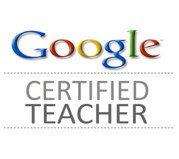How much importance do we give to what matters to our students?
I've seen and heard all kinds of responses to this question. In my experience the best teachers are interested in knowing what matters to their students. I believe that students have much to teach me and each other. I learn from my students every day. I truly value student voice and wish to explore the interests that my students bring with them into the classroom.
However, I also feel that as an adult teaching children, it is my responsibility to guide them. The teacher has the role of guiding the class and setting up the environment. I guess I believe in student-centered learning with the teacher directing things, but in a way where the students are empowered.
In my opinion, the younger the students are when they realize that their ideas, interests and feelings matter in their education, the better. I student taught with a truly impressive 4th/5th grade teacher. He did many little things that made a big impression on me and, I'm sure, on his students. One thing that I learned from watching him teach was the way he put greater emphasis on questions than on answers. He frequently set up situations and gave assignments where the students were required to question: question each other, question the texts, question their parents.
Children are naturally curious (think of the three-year old's favorite sentence: Why?). But, in many cases it seems that the structure of our schooling, instead of building on this natural curiosity and directing it toward learning, stifles it. Instead of learning to ask deeper questions (although what is deeper than Why?) students are learning to stop asking questions at all.
In my current experience, I am finding that by the time they are in the upper grades, the students have become passive. They are waiting to be taught instead of actively seeking to learn.
Exhibit A: My first year at the school, I bought the wonderful, multi-media authoring software,
Media Blender. The 5th grade teacher suggested having students write multimedia science reports. I asked the students to brainstorm ideas for topics. After I read the topics: sharks, frogs, volcanoes, etc., I asked them to write down some of their questions about these topics. I got faced with a roomful of blank stares. Questions? Why would we write questions? What do you mean?
"Well," I tried, "what is it you want to know about frogs or sharks or volcanoes? What do you want to learn?" Again, blank stares. Finally, one of the students set me straight by telling me that they just chose what they thought would make a good report.
I decided, then, to scrap the science reports and let them create multimedia projects on whatever topic was of interest to them. It could be anything at all, as long as it was appropriate for school.
Two Things:
One- I worried that this was a bad move on my part. I never "teach tech" as in just teaching how to use a software program. Was this a case of teaching tech or was it an example of letting students explore their interests?
Two- Although many of the projects were not academic in terms of content, the class was highly engaged, highly motivated, collaborating beautifully, problem solving, creating and expressing themselves in a variety of ways. Was this or was it not worthwhile?
The projects ranged in topic from American Idol and Survivor to fashion, sharks and comets. I had more than one parent come to me to ask what we were doing, they had never seen their child so excited about a school project before.
Since that time I have devised and used a number of student interest surveys as a way to use student voices as part of my planning. Of course, that is only one of a number of different ways that I listen to and get to know my students. Truthfully, I have been a bit disappointed with the surveys. They write things like, "We want to learn whatever you want us to learn." This may be general immaturity or just apathy, maybe boredom or disinterest in the survey, but I tend to think it is also a failure of our school's approach in the younger grades. By the time they are in the upper grades, the students have learned to think of learning as a carrying out of the teacher's plan. To me, this is something we should be looking at school wide, as teachers and as parents. Do we want to ignite a spark or put out the flame entirely?
On a somewhat related, but somewhat unrelated note, I thought I would share a video my first grade students made about what matters to them. We submitted it to the website
1000thingsthatmatter.com (it's number 426). I love the simple truth of what is important in their lives: family, friends, pets and maybe money. I want my students to learn that what they think and feel is important, whatever their ages. Their voices matter to me.



 That, to me, is the learning process that I find taking place through this process of writing, reading and interacting through blogs and other networks.
That, to me, is the learning process that I find taking place through this process of writing, reading and interacting through blogs and other networks. 


